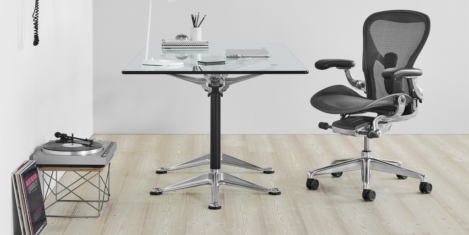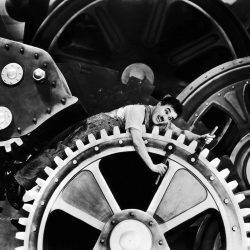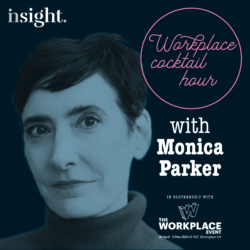January 18, 2024
Office trends may come and go, but some values (such as good ergonomics) are eternal
 In 2024, Wellworking celebrates 25 years of being in business, a milestone I’m proud of in such a competitive market. A lot has changed over that time, and I’m excited by just how much working habits will transform over the next few decades too. When I first established the company in 1999, it was called Home Working Solutions as I felt there were increasing numbers of people working from home that needed appropriate furniture to do that. It was important to me that they had access to quality ergonomic products as I felt that people working from home had very few options on offer at the time. More →
In 2024, Wellworking celebrates 25 years of being in business, a milestone I’m proud of in such a competitive market. A lot has changed over that time, and I’m excited by just how much working habits will transform over the next few decades too. When I first established the company in 1999, it was called Home Working Solutions as I felt there were increasing numbers of people working from home that needed appropriate furniture to do that. It was important to me that they had access to quality ergonomic products as I felt that people working from home had very few options on offer at the time. More →







 Organisations are having to rethink the form and function of their offices in ways unprecedented in their relatively short history. And perhaps the biggest challenge is to create places to work that reflect the organisation’s culture and the needs of the people who work there (some of the time). One possible framework for aligning an office design model with the culture of the organisation is presented in a supplement published in the current issue of
Organisations are having to rethink the form and function of their offices in ways unprecedented in their relatively short history. And perhaps the biggest challenge is to create places to work that reflect the organisation’s culture and the needs of the people who work there (some of the time). One possible framework for aligning an office design model with the culture of the organisation is presented in a supplement published in the current issue of








 Monica Parker joins Mark Eltringham to share an Old Fashioned while discussing how to find wonder in the everyday, the limits of workplace design, our renewed obsession with productivity, how to achieve flow states in a world of distractions and what it means to be truly happy. There’s not much workplace news around right now as people are still finding their feet after Christmas, so we also explore some lessons we might take from the Post Office scandal about how organisations go wrong and the role of human nature in creating toxic cultures.
Monica Parker joins Mark Eltringham to share an Old Fashioned while discussing how to find wonder in the everyday, the limits of workplace design, our renewed obsession with productivity, how to achieve flow states in a world of distractions and what it means to be truly happy. There’s not much workplace news around right now as people are still finding their feet after Christmas, so we also explore some lessons we might take from the Post Office scandal about how organisations go wrong and the role of human nature in creating toxic cultures. 
 A new poll claims that over one quarter (26 percent) of employees in the UK do not trust their CEO to be open and honest, while 24 percent do not trust their senior leadership to do the same. According to the survey of 2,000 employees in the UK from Personio, transparency and employer-employee communication are pivotal to a positive employee experience and trust in the workplace. The research suggests that feeling unheard by leadership could be fuelling employees’ distrust. Over a quarter (28 percent) of employees surveyed say that they are not given a chance to share feedback to leadership on their experiences. Meanwhile, less than half (46 percent) of employees feel that leadership in their organisation actually listens and acts on any feedback when given from staff.
A new poll claims that over one quarter (26 percent) of employees in the UK do not trust their CEO to be open and honest, while 24 percent do not trust their senior leadership to do the same. According to the survey of 2,000 employees in the UK from Personio, transparency and employer-employee communication are pivotal to a positive employee experience and trust in the workplace. The research suggests that feeling unheard by leadership could be fuelling employees’ distrust. Over a quarter (28 percent) of employees surveyed say that they are not given a chance to share feedback to leadership on their experiences. Meanwhile, less than half (46 percent) of employees feel that leadership in their organisation actually listens and acts on any feedback when given from staff. 
 Gossiping at work can have serious negative impacts on your career, according to new research by Durham University Business School and NEOMA Business School. Not only are gossipers frowned upon by other work colleagues, they also become socially excluded in the company, and can experience negative career-related impacts as a consequence of their storytelling.
Gossiping at work can have serious negative impacts on your career, according to new research by Durham University Business School and NEOMA Business School. Not only are gossipers frowned upon by other work colleagues, they also become socially excluded in the company, and can experience negative career-related impacts as a consequence of their storytelling. 













January 16, 2024
Technology is stealing your time in ways you may not realise
by Ruth Ogden, Joanna Witowska and Vanda Cernohorská • Comment, Technology, Wellbeing